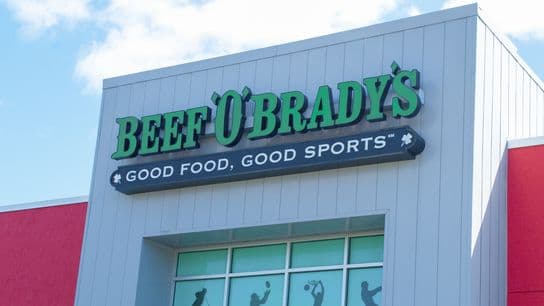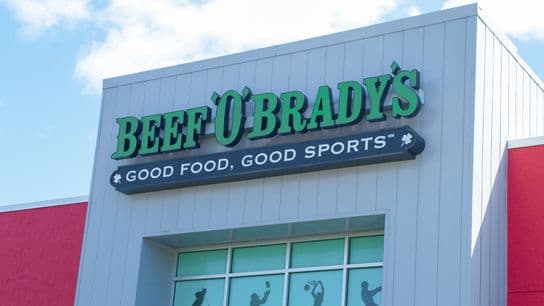With Ohio, Indiana and Kentucky's Successful Development, Penn Station Sets Sights on Pittsburgh for Next Expansion
The grilled-sandwich brand is seeking qualified franchisees for new restaurants in the Steel City.
In 2017, Penn Station East Coast Subs continued on a multi-decade path of growth that brought the franchise’s total unit count to over 300 through 15 states. As the grilled-sandwich brand proceeds on its development strategy for 2018, it is looking to Pittsburgh, Pennsylvania to open dozens of restaurants in the next two to three years.
Pittsburgh is already home to six Penn Station locations, the first of which was established a decade ago. According to Greg Goddard, Penn Station’s Director of Development and Franchising, the brand’s awareness in the territory combined with extensive room for growth makes Pittsburgh a uniquely attractive market for development.
“We had high hopes for Pittsburgh when we first entered the market,” Goddard said. “Every indicator we normally evaluate with franchisees suggested that we would find success there, and those proved accurate. Many of our restaurants in Pittsburgh have met or exceeded our system-wide average for volume. It’s not often that you have data showing potential in a market where there is so much room to grow and so little overall brand recognition at the time they first entered the market.”
With the success of the franchise’s restaurants in Pittsburgh comes another advantage for new Penn Station franchise candidates looking to now enter the market: brand awareness. Goddard said the geographic layout of Pittsburgh’s six Penn Station restaurants has generated widespread recognition and demand.
“We are very careful about where and how we approve each unit in any market. Franchisees select the sites, but we try to ensure those fit into an overall market development strategy,” Goddard said. “Our development in Pittsburgh has allowed us to get our name out in the market, generating a lot of positive buzz and increased demand, which we plan to meet with new units throughout the market.”
Craig Dunaway, Penn Station’s President, agreed the franchise’s careful development strategy is an extension of its unfailing focus on unit-level success.
“We deliberately expand our system at a rate well below our capacity for growth,” said Dunaway. “We could very well support franchisees opening 40 or 50 locations per year, but we’re not willing to open a restaurant that isn’t carefully positioned for success. Our first priority is making sure each restaurant is positioned for success.”
By establishing new restaurants closer to existing ones, Dunaway said the franchise has been able to maximize its support for each unit. “We try to grow out in concentric circles from our existing territories,” Dunaway said. “That helps with logistics, operational oversight and brand recognition.”
Part of Penn Station’s strategy to grow in concentric circles has been to encourage multi-unit expansion among franchisees. All six of the initial Penn Station locations in Pittsburgh are owned by just two franchisees, both of whom are existing multi-unit operators from other markets.
“We’re always looking for owners who have a plan for multi-unit growth,” Goddard said. “You can open a single Penn Station and have a comfortable career with just that, but this is an economy of scale. Our multi-unit operators each own on average five restaurants, leading to an exponential return on their investment.
To attract qualified new franchisees in Pittsburgh and other developing markets, Penn Station is waiving royalty fees for the first twelve months through a Development Incentive Program for new restaurants in developing markets as long as a lease is signed in 2018. Additionally, Penn Station’s enhanced Variable Royalty Program applies a sliding scale to determine a franchisee’s monthly royalties based on unit volume. Goddard said both the enhanced Variable Royalty Program and Development Incentive Program are designed to ensure franchise owners are able to invest in their own growth.
“We want to ensure we are supporting our franchise owners at every opportunity,” said Goddard. “If a new owner is just getting on their feet, it makes sense for us to relieve the financial burden as much as possible so that they can focus on building a successful business. Because the variable royalty scale applies across the system, franchisees don’t have to apply or plead their case for a break on royalties, they are automatically slotted into a lower tier if they need the help.”
According to Goddard, those incentives coupled with the market’s prime demographics, make new Penn Station restaurants in Pittsburgh a unique proposition in the franchise industry.
“Pittsburgh’s general population fits our ideal demographics in just about every respect,” Goddard said. “Our brand was founded and grew up in the Midwest which is a very similar city to Pittsburgh. Pittsburgh is a working-class city that tends to lean a little more Midwest than East Coast in terms of attitude. We’ve found a lot of success there, and we see room for much more, so we’re excited to partner with entrepreneurs who know our brand and know the market and see what a great opportunity this is.”













